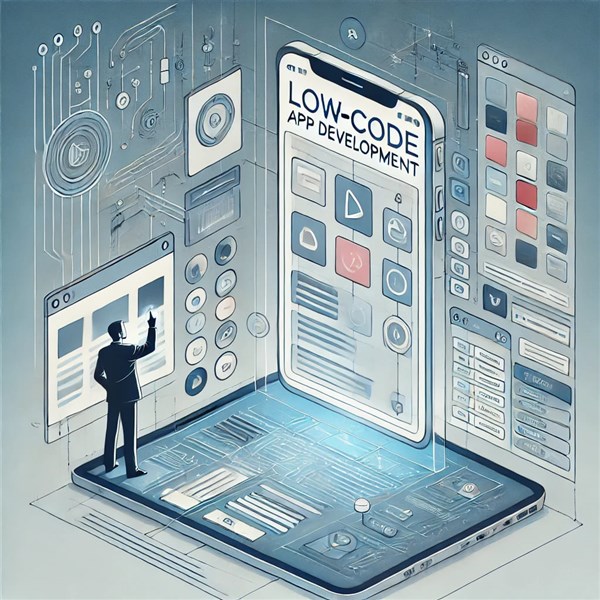Unable to find what you're searching for?
We're here to help you find it
The rise of low-code development platforms has revolutionized the way businesses build applications by enabling users with little to no coding experience to create powerful applications. As businesses seek faster and more efficient ways to develop software, Artificial Intelligence (AI) is playing a crucial role in advancing low-code development.
AI enhances low-code platforms by automating repetitive tasks, improving code suggestions, offering predictive analytics, and enabling natural language processing (NLP) for more intuitive development. In this blog, we’ll explore how AI is transforming low-code app development, making it more accessible, efficient, and intelligent.
One of the biggest advantages AI brings to low-code development is automation. Traditional coding requires developers to manually write and debug code, but AI-driven low-code platforms automate:
Example: Instead of manually writing complex SQL queries, an AI-driven low-code platform can auto-generate queries based on a developer’s intent, reducing time spent on database management.
Low-code platforms empower citizen developers (non-technical users) to build applications, but they often struggle with technical complexity. AI enhances their experience by:
Example: A business analyst using Microsoft Power Automate can ask AI to “automate invoice approvals,” and the platform will create a workflow with predefined logic.
While low-code platforms reduce the need for manual coding, AI enhances code efficiency and optimization by:
Example: AI-powered platforms like OutSystems analyze an application’s performance and recommend changes to optimize loading times and responsiveness.
AI makes process automation in low-code platforms more efficient by:
Example: In Appian’s low-code automation platform, AI can predict which customer support tickets are most urgent and route them automatically.
Low-code platforms now integrate AI-driven chatbots and voice assistants that allow businesses to build applications with intelligent self-service capabilities.
Example: Companies using Zoho Creator can build AI-powered helpdesk chatbots without extensive coding knowledge.
AI in low-code app development is helping businesses gain actionable insights by integrating predictive analytics tools directly into their applications.
Example: AI-powered low-code BI tools like Power BI and Quickbase allow companies to integrate predictive insights into their custom business applications.
AI is streamlining the Software Development Lifecycle (SDLC) in low-code environments by:
Example: In Mendix, AI suggests test cases and deployment strategies to prevent issues before they reach production.
The integration of AI with low-code platforms is still evolving, and we can expect the following advancements in the near future:
Conclusion
AI is redefining low-code development by automating processes, improving efficiency, and making software creation accessible to a broader audience. Businesses that leverage AI-powered low-code platforms can build faster, smarter, and more scalable applications with minimal technical expertise.
With continuous advancements in AI and automation, the future of low-code development is more intelligent, efficient, and user-friendly. Whether you’re a citizen developer or an IT professional, embracing AI-driven low-code solutions will give you a competitive edge in the digital era.
As the IT landscape continues to evolve, staying updated with the latest advancements is crucial. Koenig Solutions is a leading IT training company providing certifications in top technology courses, including Low-Code App Development. With a team of experienced trainers and a comprehensive curriculum, Koenig Solutions is your ideal partner for upskilling and staying competitive in the dynamic IT industry.

Aarav Goel has top education industry knowledge with 4 years of experience. Being a passionate blogger also does blogging on the technology niche.










